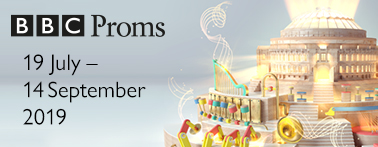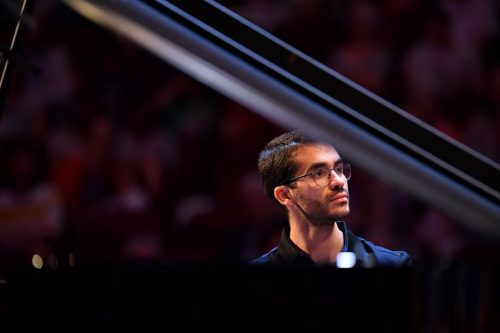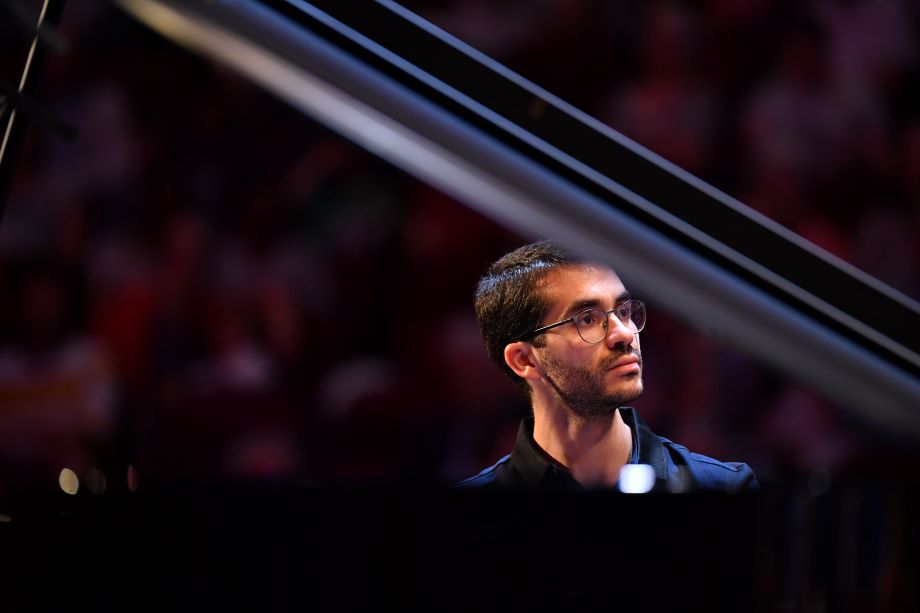
 United Kingdom BBC PROM 23 – Arnold, Rachmaninoff, Tchaikovsky: Juan Pérez Floristán (piano), BBC Philharmonic / Ben Gernon (conductor). Royal Albert Hall, London, 5.8.2019. (CC)
United Kingdom BBC PROM 23 – Arnold, Rachmaninoff, Tchaikovsky: Juan Pérez Floristán (piano), BBC Philharmonic / Ben Gernon (conductor). Royal Albert Hall, London, 5.8.2019. (CC)

Arnold – Overture, Peterloo, Op.97 (1967)
Rachmaninoff – Rhapsody on a theme of Paganini, Op.43 (1934)
Tchaikovsky – Swan Lake, Op.20 (excerpts)
An indisposition meant that Alexander Gavrylyuk, the advertised pianist for the Rachmaninoff, had to cancel, and in his stead was a real discovery: the young, 26-year-old Seville-born pianist Juan Pérez Floristán, a Proms debut artist. He has won a couple of competitions both first prize and audience award at the 2015 Paloma O’Shea Santander International Piano Competition in Spain and first prize in the Kissingen Piano Olympics in Germany in 2018. He has a deliciously light touch (some might feel too light, but the effect was to enable us to hear the familiar piece in a new light). Floristán’s clarity of texture was apposite, too, mirroring the amount of detail Gernon found in the score. The orchestral contribution was just as light as Floristán’s, and just as tight: the string pizzicato, conducted batonless, were perfectly judged. While this might imply a clean, no-nonsense performance, but it was the combined musical intellects of Floristán and Gernon that made it far more that just that. The big theme (Variation XVIII) was emotive but by now even the slightest rubato made its presence felt. Technically, Floristán is simply superb. No wonder there was an encore, and Floristán rather touchingly dedicated it to his mother, especially given that the last time he was in the Royal Albert Hall his mother was pregnant with him at the time: a terrifically spirited Ginastera’s ‘Danza del gauco matrero’ (usually translated as Dance of the Outlaw Cowboy) from the Op.2 Danzas argentinas. Here the rhythms were fiery, the accents passionately incisive; Floristán is clearly a chameleon pianist, too.
Before that, a rarity: Malcolm Arnold’s Peterloo Overture. Inspired by the Peterloo Massacre, in which a protest in St Peter’s Field in Manchester on 16 August 1909 was broken up violently by soldiers, with an estimated death toll of 18 and hundreds of injuries. Although there are graphic descriptions of the scene of the massacre, heralded by Shostakovich-like repeated drum sallies and involving an Ivesian cacophony with brass hurling out valiant, inspirational melodies over the general furore, there is real lyricism here too. The initial lyrical melody is inspired, and delivered beautifully here by the BBC Philharmonic strings. This orchestra has recorded this piece for Chandos under Rumon Gamba (part of a whole disc of Arnold Overtures) and of course the Mancunian link is most apt. Gernon’s was a terrific performance, notable for its range, from the lyricism of the opening theme (a little tighter than the Gamba) to the sound of those side drums ricocheting around the hall. Conductor Ben Gernon, who became the BBC Philharmonic’s Principal Guest Conductor in 2017 (and thus became one of the youngest conductors to hold a BBC post) is a superb musician. He directs clearly and expressively, and the bond between him and his orchestra is clear. A special mention for the superb oboist Jennifer Galloway, who played the returning, post-chaos statement of the theme so affectingly; and for the string section’s beautifully balanced repeat thereof. The BBC Philharmonic has always had a fine string section but Gernon has brought more bloom to the sound, and it is more rounded, with increased bass.
The second part of the concert was an interesting selection of music, just under an hour’s worth, from Swan Lake as one of the ‘Henry Wood Novelties’ that runs through the season. The excerpts run through the four acts nicely in order, the first number from Act I beautifully phrased, strings silken, expansive and expressive. The easing into the famous waltz from the first act was delicious, the melody given in half-voice from the strings. Gernon gave the music space to breathe, vital in this piece; yet everything was tight rhythmically. The dynamic range we heard over the course of this 55 minutes was remarkable, from physically exciting fortissimos through to an achingly tender pianissimo. Woodwind were often delightful, while leader Gjorgi Dimcevski contributed some lovely solos (his contributions to the Rachmaninoff were also notable), as did harpist Clifford Lantaff.
The cross-rhythms in the Scene from Act II (No.10) were well caught, a reflection of Gernon’s ability to capture the spirit of the dance, which was the thread that ran throughout the entire performance and which enabled him to relish the more expansive moments without interrupting the overall low and trajectory. The selection of national dances from Act III were well characterised (‘Danse hongroise,’ ‘Danse espagnole,’ ‘Danse napolitaine’ and Mazurka), but it was in the fourth act that the resplendent brass and a true sense of drama swept the music onwards towards a powerful conclusion.
Good to hear that the BBC Philharmonic are in fine form, and clearly hyper-responsive to their Principal Guest Conductor.
Colin Clarke
